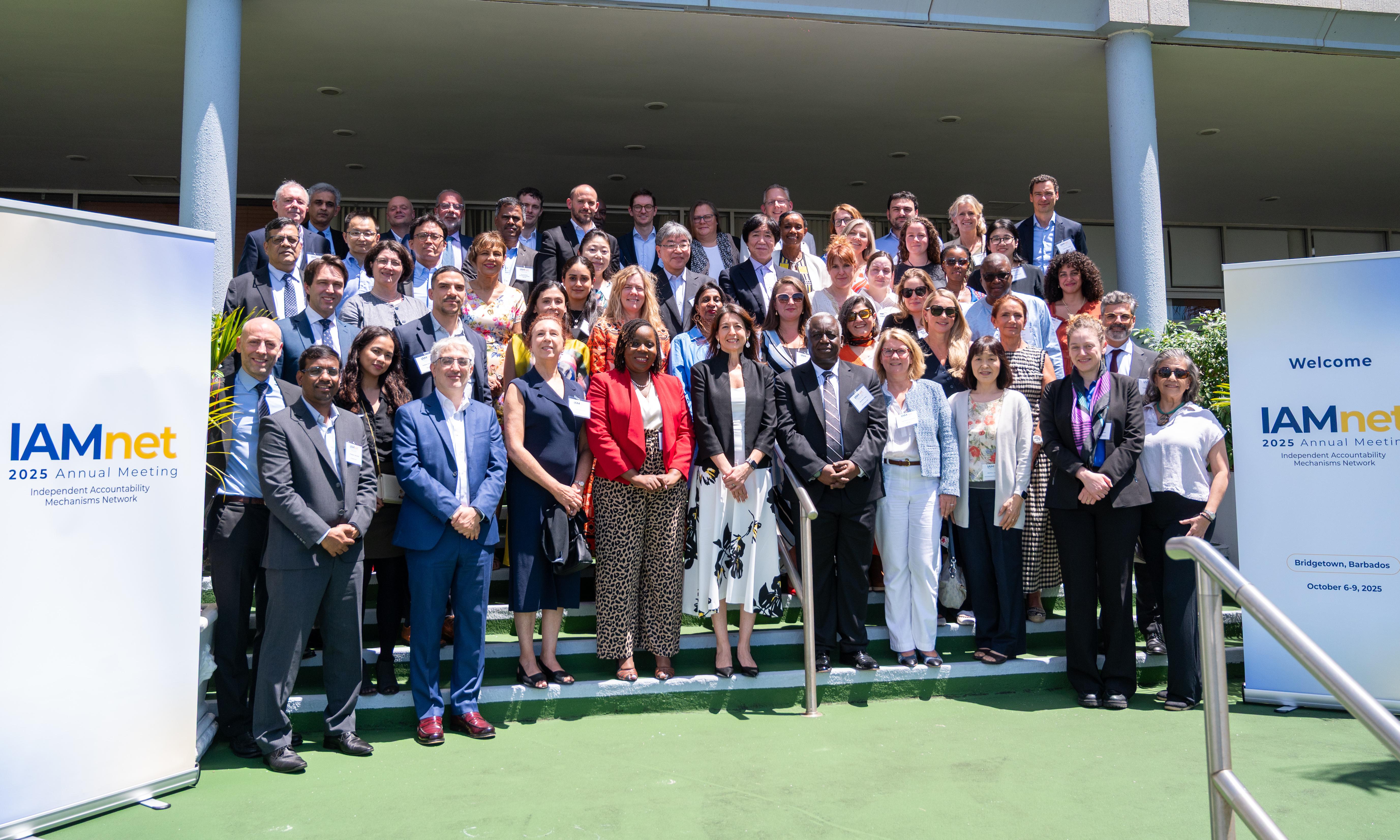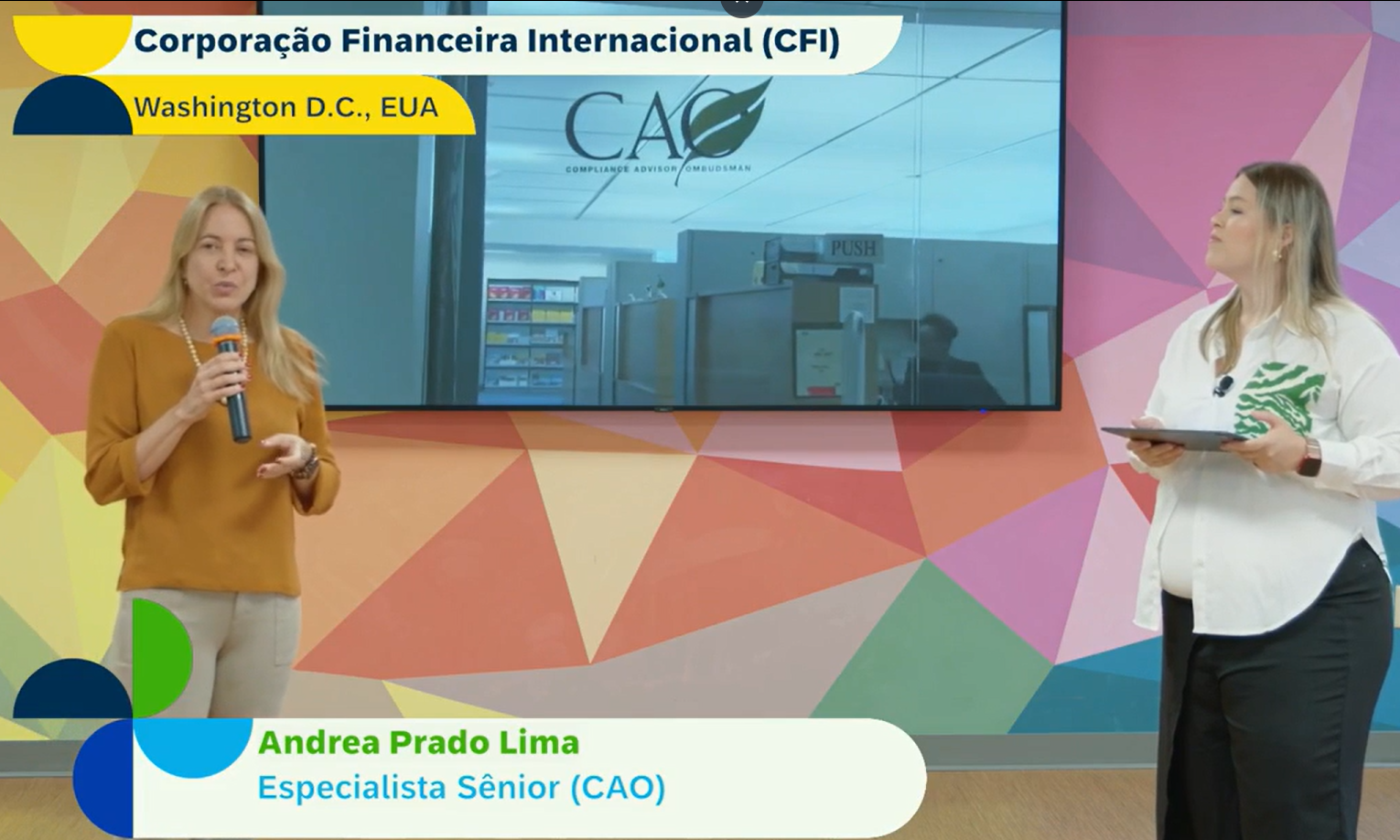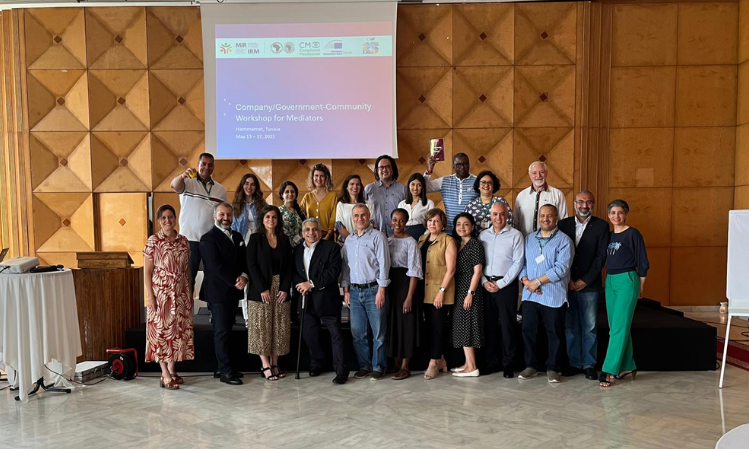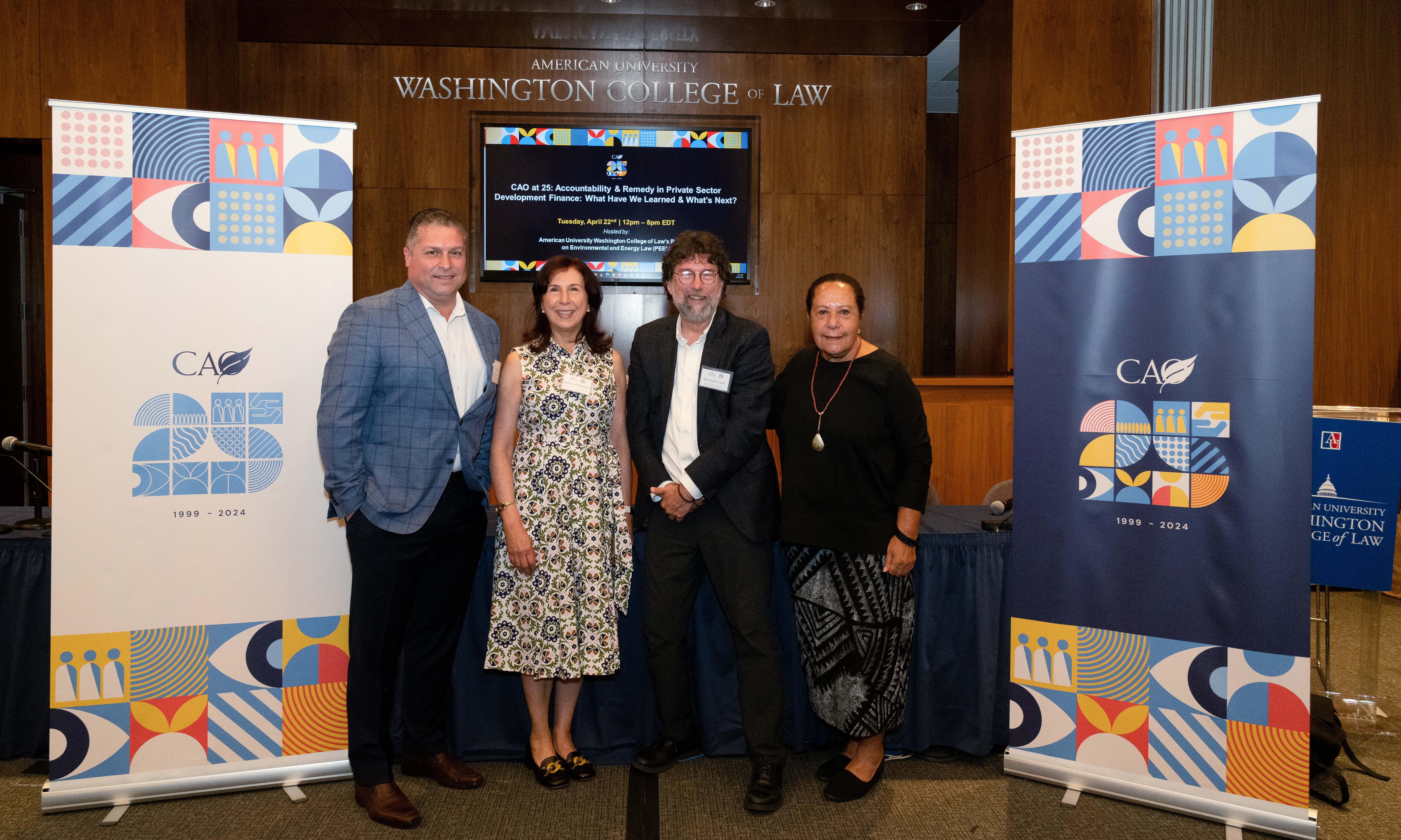CAO Engages with Civil Society During the 2025 WBG–IMF Annual Meetings
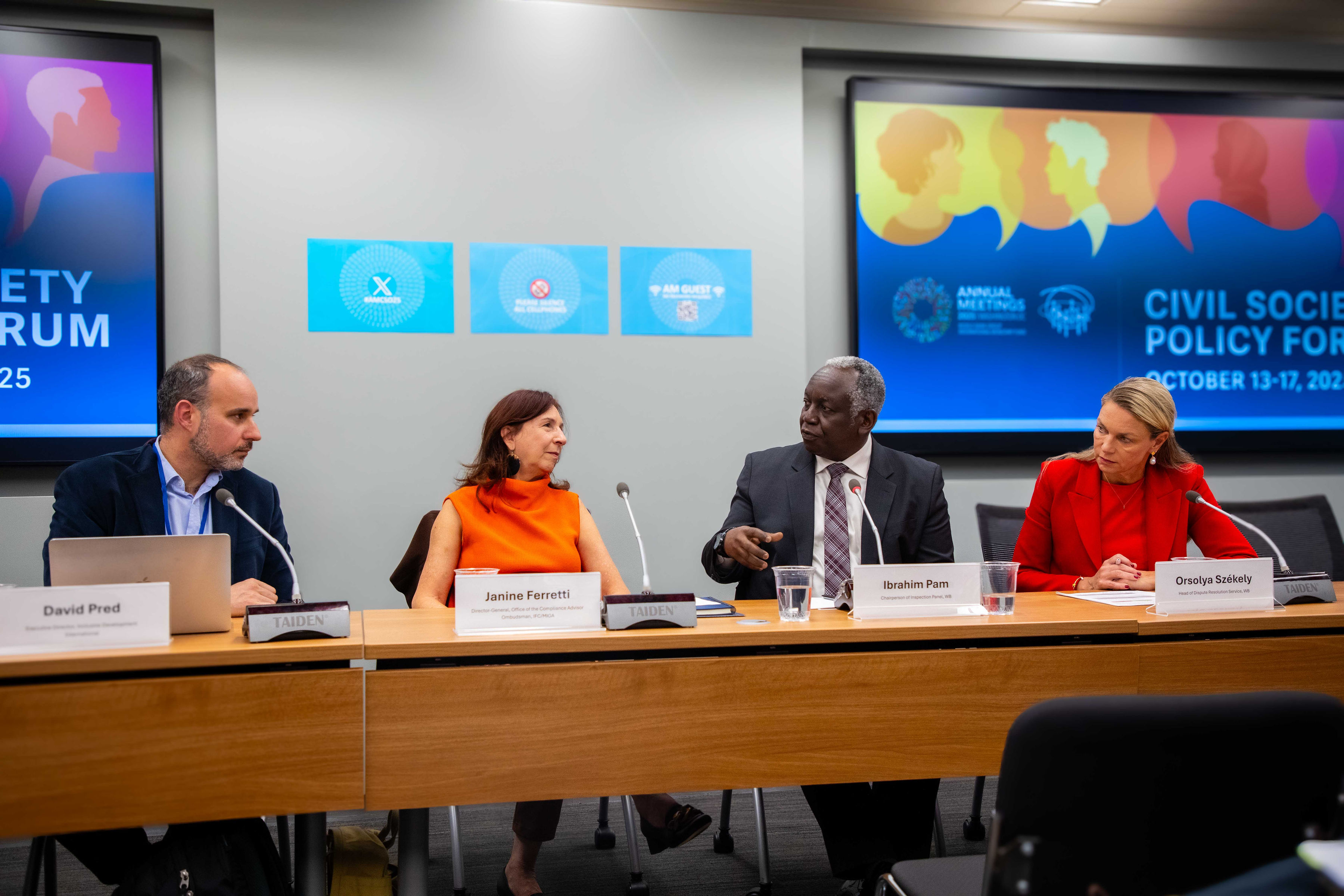
(Photo Credit: Kojo Owiredu Kissi, 2025)
During the World Bank Group–IMF 2025 Annual Meetings, held in Washington, D.C. from October 13 to 17, CAO participated in a series of discussions with civil society and accountability partners to advance dialogue on accessibility, transparency, and remedy for project-affected communities.
CAO Civil Society Roundtable
On Wednesday, October 16, CAO hosted its quarterly Civil Society Roundtable, bringing together more than 20 representatives from global and local organizations. The meeting provided an open forum to reflect on emerging accountability challenges and explore how independent mechanisms can remain responsive and effective in addressing community concerns.
Civil Society Policy Forum: Potential Integration of World Bank Group Accountability Mechanisms
On Thursday, October 17, during the Civil Society Policy Forum (CSPF), CAO Director-General Janine Ferretti joined a standing-room-only discussion on the potential integration of the World Bank Group’s independent accountability mechanisms. The session, organized by Accountability Counsel, Recourse, Inclusive Development International, and the Philippine Movement for Climate Justice, explored how integration could enhance accessibility, coherence, and effectiveness, with maintaining independence, no regression and no dilution as guiding principle. Other panelists included Parameswaran Iyer (Executive Director and Chair of the Committee on Development Effectiveness), Ibrahim Pam (Chairman, Inspection Panel), and Orsolya Székely (Head, Dispute Resolution Service).
Executive Director Iyer emphasized that integration efforts must strengthen outcomes for affected people, while Ferretti underscored the importance of translating policy commitments into tangible remedy: “We need to see a closer link between accountability and results for communities.”
Civil Society Policy Forum: Transparency as a Twin Engine
CAO also participated in the CSPF session “Transparency as a Twin Engine: Driving Community Ownership, Development Effectiveness, and Investment Efficiency at IFC,” alongside representatives from the Arab Watch Coalition, the Center for International Environmental Law (CIEL), and the Bank Information Center. The discussion focused on how transparency and accountability reinforce each other to deliver more sustainable and inclusive development outcomes.
During the panel, Ferretti emphasized that transparency is a foundation for trust and shared ownership: “When communities and institutions work with clear and accessible information, accountability becomes more meaningful, and development more effective.”
-
CAO continues to engage with diverse stakeholders to exchange knowledge and receive feedback on its work. The WBG–IMF Annual and Spring Meetings are an important platform for these exchanges, and CAO is committed to strengthening collaboration with civil society and peer accountability mechanisms.

